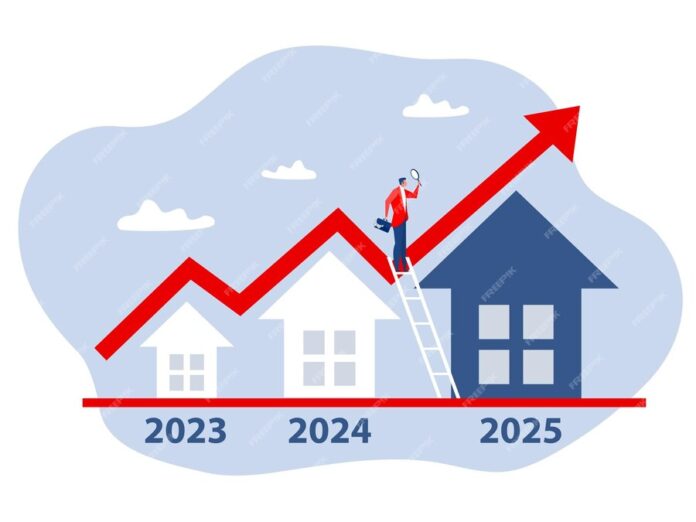The Canadian Real Estate Association (CREA) has revised its annual outlook, anticipating a robust 10.5% increase in home transactions for the year. This projection marks a slight uptick from its previous estimate released in January, which foresaw a 10.4% rise in home sales. Concurrently, CREA had initially predicted a 2.3% uptick in the average home price for 2024.
Commenting on the revised forecast, CREA senior economist Shaun Cathcart emphasized the dynamic interplay of factors shaping the housing market. He highlighted the significant population growth witnessed over the past year and the shifting stance of the central bank, hinting at potential rate cuts that could further influence market dynamics.
Cathcart’s remarks underscore the uncertainty surrounding the housing narrative in 2024, speculating on whether high-interest rates might dampen activity or if anticipated rate cuts could reinvigorate demand.
The adjustment in forecast coincides with CREA’s report of a 1.7% year-over-year increase in home sales for March. Furthermore, the average selling price for homes during the same period saw a 2% uptick, reaching $698,530.
Breaking down the data, CREA notes a modest 0.5% month-over-month increase in home sales for March. However, the number of newly listed properties experienced a slight decline of 1.6% compared to the previous month.
Despite these fluctuations, the national inventory levels remained stable, with 3.8 months of inventory available by the end of March, mirroring February’s figures but falling short of the long-term average of approximately five months of inventory.
In summary, CREA’s latest projections and market observations indicate a dynamic landscape for Canadian real estate, shaped by evolving economic factors and shifting consumer sentiments.
Conrad Zurini, the proprietor of Re/Max Escarpment Realty, remains optimistic about the housing market’s trajectory, even in the face of the Bank of Canada’s decision to maintain its key rate unchanged for the sixth consecutive time. Zurini, hailing from Hamilton, observes a prevailing sentiment among consumers that suggests anticipation for a potential decrease in borrowing costs.
According to Zurini, consumers perceive brighter prospects on the horizon, expecting that any forthcoming rate reduction will further fuel the already buoyant housing market. This sentiment, he believes, is prompting prospective buyers to act swiftly, fearing they may miss out on favorable conditions.
Larry Cerqua, chair of the Canadian Real Estate Association (CREA), acknowledges that March’s home sales levels appeared relatively stagnant on a month-over-month basis. However, he points to emerging anecdotal evidence from late March and early April indicating a resurgence in market activity.
Zurini’s observations align with this narrative of a potential market boom. Data compiled internally at his agency indicate a notable uptick in property showings, with a remarkable 25% increase observed week-over-week at the onset of April.
Yet, Zurini cautions that this surge in demand may exacerbate challenges related to housing inventory. As demand outpaces supply, the appreciation in home values could potentially nullify any savings accrued from a modest interest rate reduction when purchasing a property.
Reflecting on this dynamic, Zurini emphasizes a prevalent adage in the mortgage realm: “If you wait for the rate, it could be too late.” In essence, he urges prospective buyers to act decisively in light of evolving market conditions rather than relying solely on anticipated rate adjustments.
























